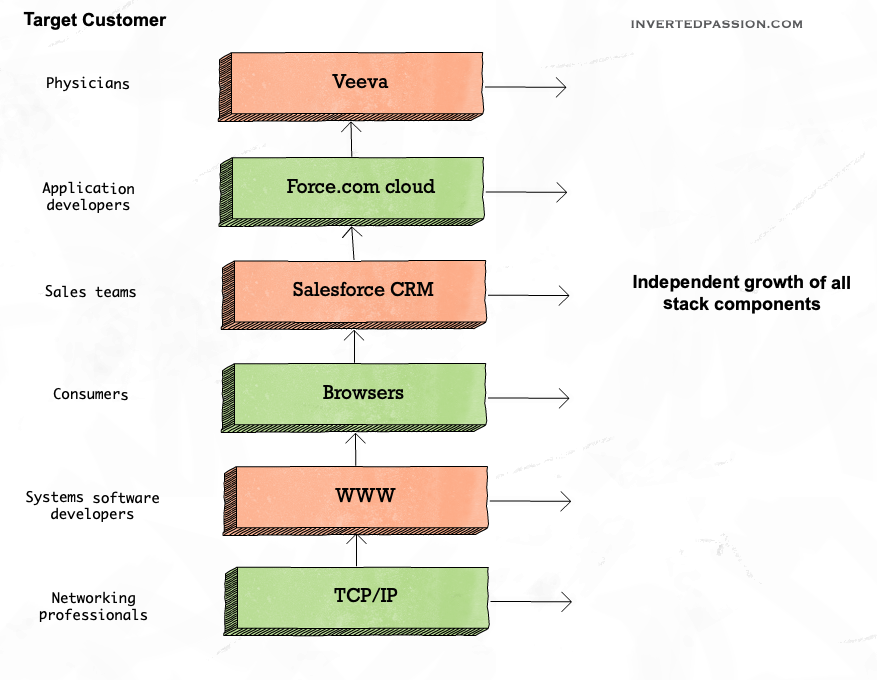Can an app built on top of Facebook become bigger than Facebook itself?
It’s easy to believe that you will get limited by how big is the businesses on which your business is built. But that’s not true. An app built on top of Facebook can become bigger than Facebook because the customers and desires that Facebook serves are very different than customers and desires that the business that’s built on Facebook is trying to serve. Facebook, in this case, is simply an enabling platform while the real value to the customer is being created by the app.

Take Veeva for example. It’s CRM for physicians and general practitioners in the medical industry. Their offering is completely built on Salesforce but because their target customer and use case is different from Salesforce, they’ve managed to build a substantially sized business ($1.4bn annual revenue as of 2020) which is a significant percent of Salesforce’s own size ($16Bn annual revenue as of 2020).
Stack fallacy is when you believe that it’s easy to replicate another business built on top of your business. This line of thinking jeopardizes genuine, growth-generating partnerships as you end up sending a signal in the market that you’ll compete with your own customers or partners.
Remember when Google launched its own social network to compete with Facebook on Android and on the web. Or when Apple launched its own maps to compete with Google Maps on iPhone? The relatively low adoption of such products is a powerful lesson that reminds us that different layers of the stack are relatively independent of each other and that the success of a business depends on the market and competitive scenario within a particular level of the stack.
Remember: how big your business can grow mostly depends on your customers, and not on your vendors.
This essay is part of my book on mental models for startup founders.
Join 200k followers
Follow @paraschopra